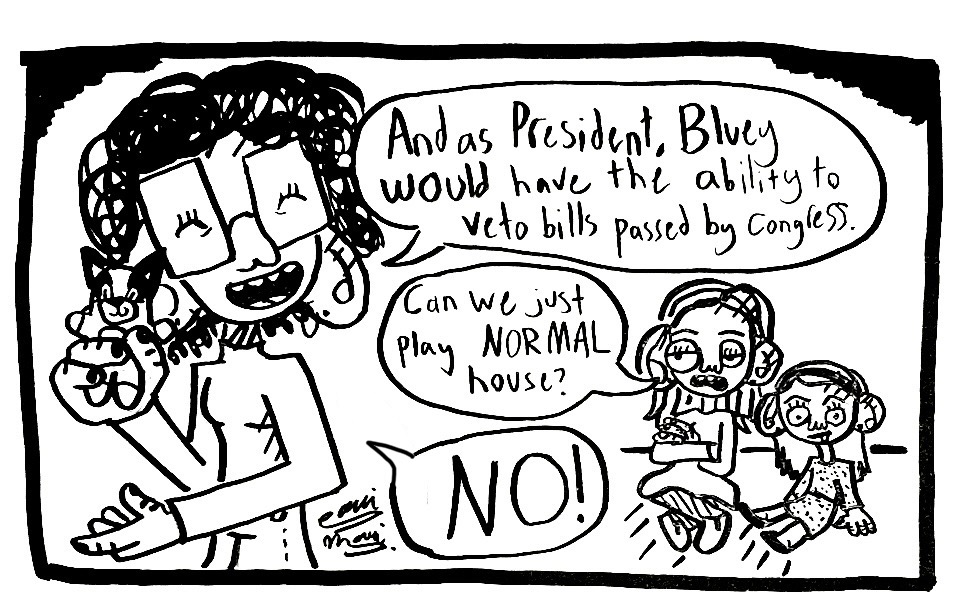Arianne Noorestani, a freshman majoring in environmental studies, is a Hatchet opinions writer.
When I look back on my childhood, I recognize now that my mother always parented with compassion and understanding. My mom taught me to treat others, especially those who were different from me, with respect and kindness. But she also taught me to be realistic, so I learned early on that others wouldn’t always be so curteous and compassionate.
When my mother fled Afghanistan and left her family, friends and job as a civil engineering professor behind, she understandably faced economic hardships. Unfortunately, what impacted my mother most wasn’t her struggle for money – it was the social divide that developed between her and the people she was forced to associate with at work and in her neighborhood. Her broken English, her thick Afghan accent, her lack of exposure to American customs and most importantly, her Muslim religion, made her an outsider. Despite being treated differently, my mother always taught me to look at the world through other people’s eyes. I learned that intelligence stems from empathy and that empathetic intelligence requires you to understand that everyone has a unique story.

Before this presidential election, I naively assumed that everyone was brought up in a similar way I was. After all, it’s 2016, and we’re living in a century of great social and cultural progress. But through this election cycle I’ve finally started to realize how extremely difficult it is for some people in today’s society to put themselves in other people’s shoes.
I’ve always had a strong dislike for the chaotic world of politics and have tried to stay away from it as much as possible. So when I first heard Republican presidential nominee Donald Trump’s threat to ban Muslims from entering the U.S., I didn’t think much of it. If anything, I found the absurdity of Trump’s outrageous allegations slightly comical. I mistakenly assumed the American public would, too. Unfortunately, that wasn’t the case. Trump’s support only grew, as did my family’s fear for their own safety and wellbeing.
Since I don’t practice Islam myself, I didn’t immediately comprehend the significant impact that a ban on Muslim immigration could have. Although Trump’s idea was indeed terrifying, I told myself that it would be almost impossible for a ban to be approved by our politically divided Congress. But my view shifted once my mother began receiving phone calls and text messages from family members all over the world who took Trump’s threat very seriously. Everyone wanted to know if a possible future leader of the one of the greatest nations in the world was really calling for a complete shutdown on Muslim immigration.
Once I heard the concerns of my family members – most of whom are practicing Muslims – it dawned on me: A ban on Muslims entering the U.S. would mean that yearly family visits from my family in Australia and Germany would halt. It would mean that my younger cousin, who recently graduated from college in Afghanistan, wouldn’t be able to move to the U.S. to look for better job opportunities. I realized the effects of this ban would go beyond the borders of the U.S., and while it might not immediately affect me, it would have a deep personal effect on my family.
I wanted to know my unwaveringly pragmatic and civil mother’s take on Trump’s rhetoric. She wasn’t fearful, and she wasn’t angry. She just watched Trump’s campaign unfold with an observant eye. She watched as Trump claimed climate change was a hoax. She watched as he blamed immigrants for the war on drugs. She watched as he casually dismissed multiple accusations of sexual assault. And she watched as he and his supporters claimed that all Muslims either know terrorists or should be banned from coming into our country.
“How can you remain so calm?” I remember asking my mother. “How could you be OK with the effects that this ban could have on not only our family but the millions of suffering refugees all over the world?”
She said she wasn’t OK with any of it. But instead of sitting in fear in the comfort of her own home, she was going to do something about it.
My mother explained to me that Trump’s campaign is driven by fear. People fear for our nation’s security, and they fear what they do not know. Unfortunately, she taught me, this fear has led millions of Americans to support anti-Muslim policies. The idea of an empathetic intelligence is something that is nonexistent in other households.
And so, my mother told me that instead of sitting on the sidelines and letting people believe that all Muslims are terrorists, I should join her in the fight to educate the public. My mother expressed how vital it was for us to take initiative during this election cycle. She said we need to teach our peers and their families – whether through Facebook posts or simple conversations – that not all Muslims are national security threats and explain how much of an effect a ban would have on the lives of people all over the country.
The story ends with a young rising college freshman who once hated all things politics actively working during this election to help educate the public. I’ve made the conscious effort to speak to my peers and their families about the effects that Trump’s presidency would have. I’ve written letters and articles for my high school newspaper to share my story. Regardless of who wins this election, I can proudly say that I’ve done what I can to unveil the truth that Trump has hidden with his false words.
I’ve always strived to put myself in other people’s shoes my entire life, based on what my mom has taught me. Now it’s time for the rest of our society to do the same.
Want to publish a personal essay? Submit your idea.




